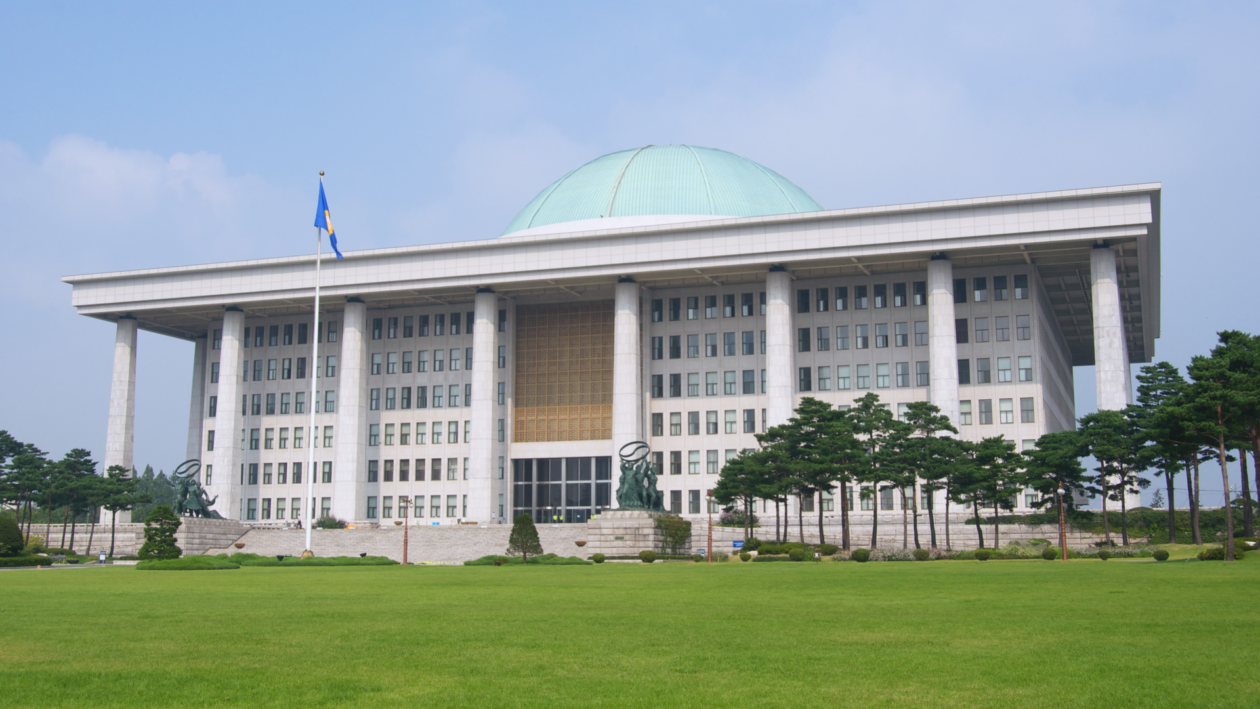Thursday’s parliamentary audit of South Korea’s top financial regulator, the Financial Services Commission (FSC), was expected to answer some pressing questions related to the collapse of Terra-LUNA back in May this year.
The annual event at the National Assembly usually examines the current presidential administration and government agencies by summoning respective government department heads and relevant witnesses.
This year, due to the seriousness of May’s crypto crash, much of the attention was focused on the Terra-LUNA meltdown.
However, a key witness to the US$60 billion Terra-LUNA crash, Shin Hyun-sung, the cofounder of Terraform Labs Pte. Ltd. who is also known as Daniel Shin, decided not to appear before the lawmakers.
Shin said his appearance would interfere with the ongoing investigation on Terra-LUNA, for which he expected to be summoned in the near future.
See related article: Terra cofounder Daniel Shin pulls out of S.Korean parliamentary audit, report says
The session on the country’s financial regulator lost momentum, local media reported, as Shin, who was summoned by the lawmakers last month, was expected to give his explanation and insight on Terra-LUNA.
Shin, who built Terraform Labs with Kwon Do-hyung (Do Kwon) in 2018, left the company after two years to establish CHAI Corporation, a fintech payment firm of which he currently serves as CEO.
Shin says that he cut ties with Kwon in March 2020, which was more than two years before Terra’s stablecoin and sister cryptocurrency plummeted. For this reason, some argued that Shin was not an adequate witness for the audit.
“To my knowledge, Shin was not deeply involved in Terra-LUNA,” Park Sun-young, economics professor at Seoul-based Dongguk University, told Forkast. “Of course, if he did attend [the audit], I think it would have helped explain the early-stage developments [of Terra-LUNA].”
South Korean prosecutors investigating Terra-LUNA are chasing after Terra CEO Do Kwon, whose whereabouts are still unknown, with charges including violation of the Capital Markets Act, where local authorities define Luna (now Luna Classic) cryptocurrency as a security.
See related article: South Korea issues arrest warrant for Terraform Labs CEO Do Kwon
The nature of cryptocurrency and whether it is a security is still being debated in and outside of the crypto space. Shin’s testimony may have become a crucial deciding factor.
Without Shin, lawmakers questioned only one witness directly related to Terra — Kim Ji-yun, the CEO of Seoul-based DSRV Labs, a blockchain infrastructure provider and validator of Terra blockchain.
“A validator is a company that participates in verifying a blockchain for fees in return, so I don’t think [DSRV] has much to do with Terra-LUNA’s overall governance,” Dongguk University’s Park told Forkast.
As expected, Kim did not provide much noteworthy information. As a validator and investee of Terra, Kim said the information Terra shared with DSRV was limited.
“I know that the victims [of the Terra-LUNA crash] are in a lot of pain (…) I think at this point, all I can do for them is to express my support,” said Kim, who added that as a validator he had some reservations about Terra, without elaborating.
See related article: Terra’s network validator DSRV Labs CEO denies prior knowledge of Terra-LUNA collapse
Despite not having key witnesses of Terra-LUNA present, lawmakers were adamant about assigning accountability for the crash and the aftermath.
South Korea’s ruling party lawmaker Yoon Sang-hyun asserted that government agencies, financial institutions and crypto exchanges are all “indirect conspirators” of Terra-LUNA.
Yoon queried Lee Sir-goo, the CEO of Dunamu Inc., the company that operates the country’s largest crypto exchange Upbit, whether exchanges that listed “dangerous” Terra-LUNA tokens should be held legally responsible. Lee was summoned to testify on issues surrounding the exchange, such as suspicions of insider trading.
To Yoon’s rhetorical question, Lee cast the liability over to the regulators.
“For the last five years, I have talked about [setting a standard for listing crypto], but such regulatory loopholes have not been fixed, leading to such regretful events,” Lee said at the audit.
See related article: South Korea’s all-encompassing crypto law is coming — what we know so far
South Korea is developing an all-new regulation on cryptocurrencies named the “Digital Asset Basic Act,” which is expected to focus on better investor protection measures. Kim Joo-hyun, the chairman of the FSC, asked the lawmakers to discuss the existing proposals for the new law speedily.
“A recent article said that the EU’s MiCA (Markets in Crypto Assets) rule will be voted on by the Committee on Economic and Monetary Affairs next week,” Park said. “I hope that the National Assembly will make such efforts to legislate the Digital Asset Basic Act in Korea.”





